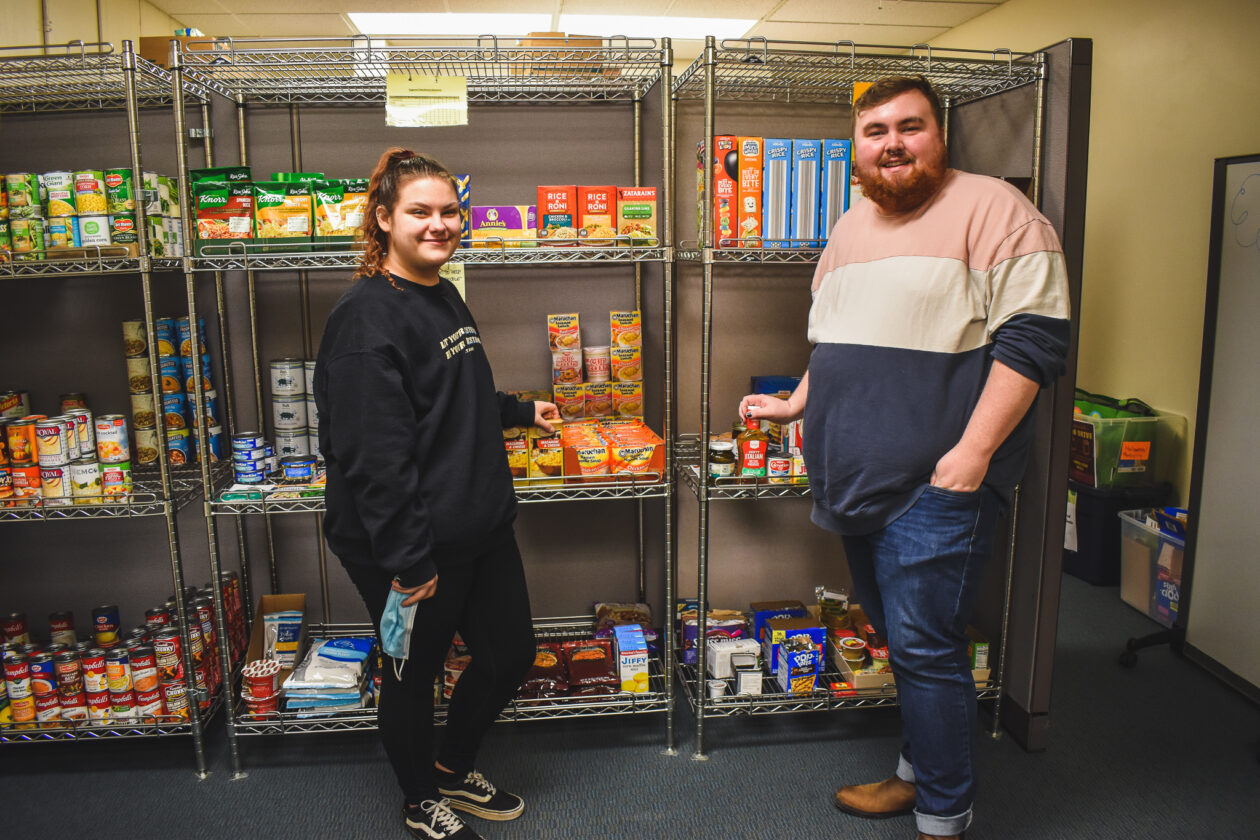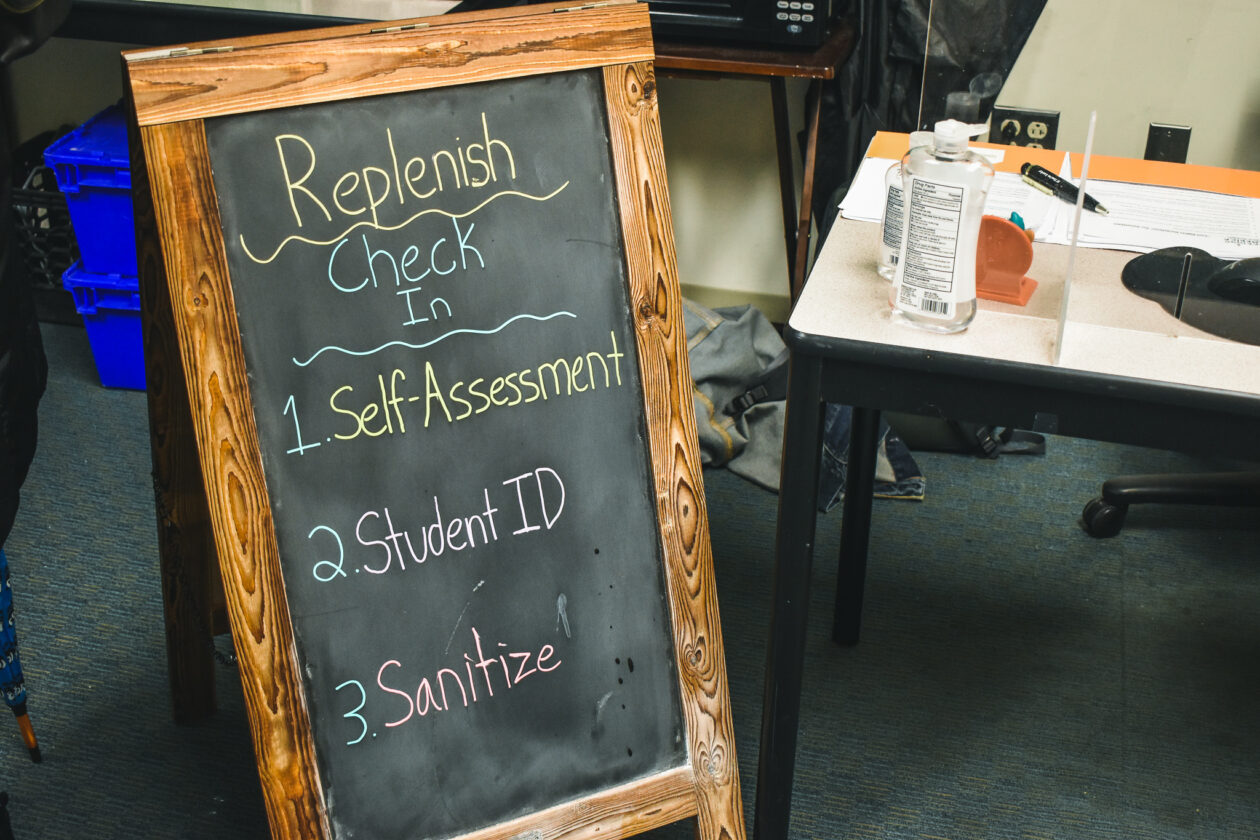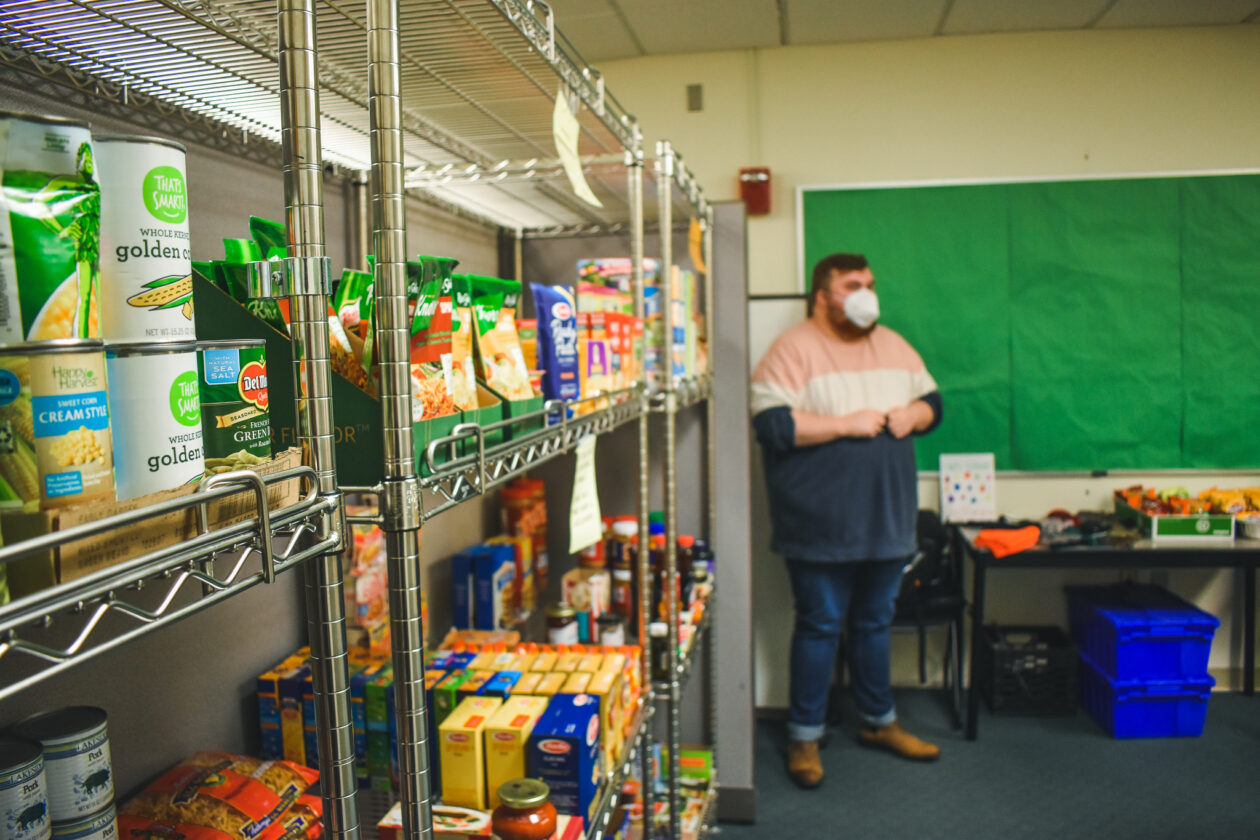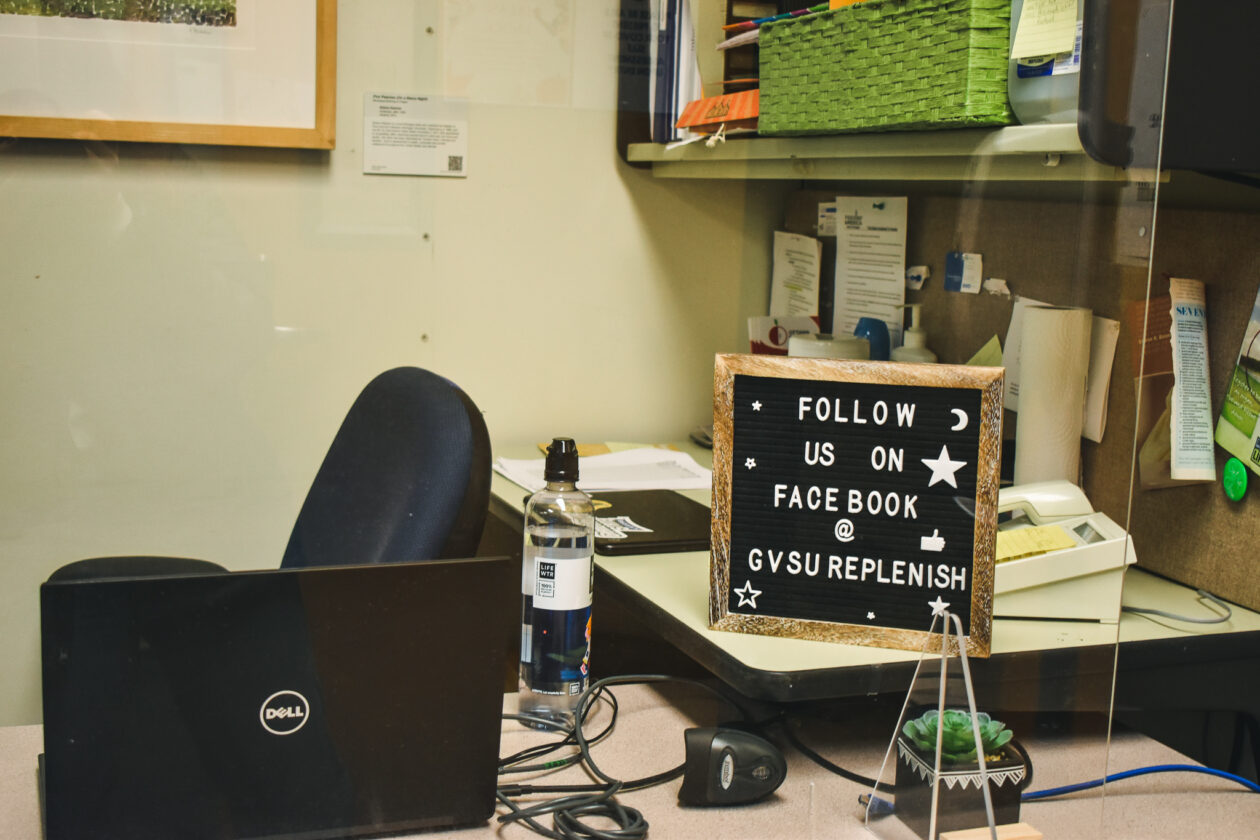Across the country, 1 in 3 college students is food insecure, which means they can’t always access or afford the food they need to thrive. Kyle Holcomb (he/they), who just graduated with his Master’s of Education from Grand Valley State University, often led with this statistic when telling students about Replenish, the school’s food pantry.

Kyle hoped to show students that facing hunger is nothing unusual, and it’s certainly nothing to feel ashamed of.
“A lot of students come in feeling a little defeated already,” he said. “A lot of them see the pantry as their last resort. I wish we could destigmatize this for students, so they don’t eat ramen for three straight weeks before deciding to come in.”
For the last two school years, Replenish was run by Kyle and two student staff members and served around five or six students each day. The pantry provides plenty of nonperishable foods and at times has fresh produce and protein available as well, although these items go quickly!
Alicia, one of the student employees, said, “We’re not here to judge. We’re here to help.”
College Students Face Barriers to Food Access
Kyle first realized how many students need food assistance when he worked as a resident assistant in undergrad.
“I started recommending Replenish to my students and I thought ‘this is so cool,’” he said. “I didn’t realize how prevalent hunger was until I became an RA and was like, ‘Wow, students aren’t eating,’ or they’d spend money on food and not be able to afford textbooks.”
Grand Valley students who live on the Allendale campus can purchase a meal plan, but since the pandemic greatly reduced the number of dining options, more students are opting out and are instead choosing to sustain themselves.
“This may make them feel they need to struggle or take out more loans to afford food,” Kyle said.
On top of COVID-related challenges, Allendale is distant from most grocery stores. This means students without a car need to rely on the bus. International students in particular experience barriers to accessing food because of this, so they’re one of the larger demographics Replenish serves.
Pantry Aims to Meet Diverse Needs
Serving as a graduate assistant at Replenish, Kyle learned that different student populations have unique needs. For example, international students from central Asia typically prefer fresh or frozen produce to canned produce because of the way their countries process food.
Replenish is also uniquely situated to serve another population at higher risk of hunger—LGBTQ+ students. As part of the Center for Women & Gender Equity, Replenish is located near the LGBTQ Resource Center, and works closely with them to serve students in need.
“I would say we have a disproportionate number of people from this population using the pantry,” Kyle said.
He estimated that only around five percent of the GVSU student population is LGBTQ+, but that demographic represents 20 percent of all students visiting Replenish.
“I think these students often have security net issues. Being LGBTQ can complicate relationships with parents or make people not want to get closer to their parents and ask for help.”
This disparity shows up across the country. According to a 2021 U.S. Census Bureau study, 13.1 percent of LGBT adults lived in a household that experienced food insecurity in the past seven days, compared to 7.2 percent of non-LGBT adults.
As a member of this community, Kyle understands this feeling but is grateful he had family support during college.
“I was experiencing food insecurity in that I was relying on my mom,” he said. “I sympathize with students because, if I had not had the blessing of my mom who was close by and willing to help out, I don’t know how I would’ve made it without a resource like this.”
Meeting More Student Needs in the Future
Although Replenish is hopefully reaching the students who are most in need, many who could benefit from the resource don’t know it exists or think it’s not for them. However, now that the school’s enrollment department recently took over the Center for Women & Gender Equity, Kyle is hopeful this change will mean students learn about Replenish more quickly.
“It makes sense for it to be part of enrollment,” he said. “To enroll and maintain a great student body, you need to feed them and take care of them.”
Kyle graduated this year and will pass the baton to a new graduate assistant. He’s hopeful the pantry’s future leadership will continue to increase its visibility and is also hopeful the school will increase the availability of basic needs to all students.
“In a perfect world, we wouldn’t need resources like this,” he said. “But until then, I’d love to see Grand Valley continue to expand its efforts to serve the student body. Maybe bring on a full-time staff focused on basic needs, which could combine what we do at Replenish with the care team, which helps students in need of housing or in financial crisis.”
Kyle also wants to see the pantry strengthen its partnership with Feeding America West Michigan, which would increase its ability to source fresh food for students.
Ensuring all neighbors have the food they need means breaking down stigma and educating people about the resources available to them. Kyle has done a great job promoting Replenish in his time there and making sure students feel welcome and supported.
A grant Feeding America West Michigan received from the Conagra Brands Foundation is helping us fund an organization-wide analysis of how our food bank can better serve communities facing disparities that create barriers to food access. Stay tuned to hear how changes we make will help us better serve all neighbors in need across our community.




